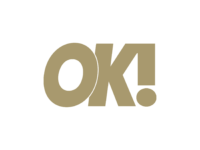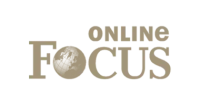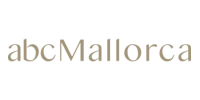14 Minutes
CONTENTS
Attending treatment sessions has benefits, not just for the clients. The majority of mental health specialists think that the therapy process is both enjoyable and educational.
The technique in which therapists attend to and connect with their clients becomes part of their routine to them and an important component of their character.
During therapy sessions, clinicians could recognize and effectively work with their mental health problems, according to Irvin Yalom, a well-known author who has authored several useful resources for mental health professionals. Part of flourishing as a psychotherapist is also about thriving as a person.
Therapists can choose between a variety of literary works to improve their skills. This chapter provides an overview of some of the most widely used and advised materials for counselors and therapists at all levels. This section is a set of resources you won’t want to miss, ranging from general therapeutic manuals to more content on particular sorts of therapies.
Four Of The Best Therapy Books For Therapists
There are a few books that are frequently recommended by therapists as must-reads. Here are a few of our top therapist help books.
1. Cognitive-Behavioral Treatment of Borderline Personality Disorder – Marsha M. Linehan
For ages, therapists have struggled to manage borderline personality disorder. When it pertains to recognizing and treating borderline personality disorder, this book presents the best Cognitive-Behavioral Therapy (CBT) approaches.
Clinicians can employ an inclusive and integrative approach in Cognitive-Behavioral Treatment for Borderline Personality Disorder.
Marsha Linehan discusses recent breakthroughs in CBT and Dialectical Behavior Therapy, as well as how therapists might mix the 2 approaches to improve outcomes.
The book is easy to read and understand, and it is strongly recommended for psychotherapists who interact with patients who have a borderline personality disorder or who want to learn more about treatments.
2. The Developing Mind: How Relationships and the Brain Interact to Shape Who We Are – Daniel J. Siegel
The Developing Mind has been a worldwide bestseller, with over 100,00 readers. This book, written by Daniel Siegel, is organized around how interpersonal interactions shape our emotions, actions, and thoughts.
Human interactions are introduced in the book to be as powerful as the nurture and nature concepts that therapists have been using for years. Siegel supplements his conclusions with scientific facts and real-life situations.
The Science of Interpersonal Relationships and Its Application in Therapeutic Approaches Gets a Whole New Level in The Developing Mind.
3. The Gift of Therapy: An Open Letter to a New Generation of Therapists and Their Patients – Irvin Yalom
Irvin D. Yalom has more than 35 years of experience as a clinician. In his book The Gift of Therapy: An Open Letter to a New Generation of Therapists and Their Patients, he wonderfully depicts his precious knowledge and insights of the therapist-client interaction.
The book contains over 80 critical guidelines for new psychotherapists, as well as enlightening case studies.
This book is a great read for new therapists and professional clinicians who want to stay up to date on important therapy subjects like recognizing personal biases, performing health checks, and personalizing the therapeutic process each time.
4. Motivational Interviewing: Helping People Change – William R. Miller and Stephen Rollnick
Motivational interviewing is a strong approach and a productive technique that is particularly effective in professional environments.
William Miller and Stephen Rollnick, writers, have presented their years of study results and discussions on the various parts of motivational interviewing and how psychotherapists might incorporate them into their practices.
The book is written in an easy-to-read style and covers practically every area of motivational interviewing. This help book is also recommended for professionals who work as executives, administrators, or business recruiters, in addition to conducting psychotherapy.
Four Must-Have Couples Therapy Books For Professionals
On his website, Dr. Robert Solley, a licensed clinical psychologist and relationship therapist, recommended the following works as must-reads for psychotherapists and anybody trying to maintain successful relationships.
1. Hold Me Tight: Seven Conversations for a Lifetime of Love – Dr. Sue Johnson
In her work Hold Me Tight, Dr. Sue Johnson takes a risk in attempting to make Emotion-Focused Therapy available to all readers.
She brings the reader on a trip to understand better the moments that can build or destroy relations, as well as the importance of self-expression and efficient communication. She’s also given helpful advice on how partners can work together to create a lasting relationship.
2. The Gifts of Imperfection: Let Go of Who You Think You’re Supposed to Be and Embrace Who You Are – Brené Brown
Acceptance is a key component of successful relationships, as author Brené Brown explains in her best-seller book The Gifts of Imperfection: Let Go of Who You Think You’re Supposed to Be and Embrace Who You Are.
The book is a go-to inspirational resource for healthy living. It offers an environment conducive to self-esteem development and demonstrates to counselors a novel approach to assisting couples in regaining their happiness.
The book goes into topics such as dedication, expectation management, and gratitude demonstrating how couples can accept one other’s flaws while being happy in their relationships.
3. Clinical Casebook of Couple Therapy – Alan S. Gurman
The Clinical Casebook of Couple Treatment is a compendium of the best relationship management techniques, with real-life examples from therapy meetings. It is an open discussion of the various scenarios that counselors may encounter and how they might respond effectively to these.
This book contains numerous case studies and therapeutic models that can engage newcomers to the area and help them effectively use them in their profession.
4. The Practice of Emotionally Focused Couple Therapy: Creating Connection – Susan M. Johnson
This book was first released in 1996 and has been one of the most popular books among counselors, therapists, and academics ever since. The book has been constructed in such a way that it is still valid today.
It covers the most up-to-date information about Emotion-Focused Therapy, as well as its interventions and applications.
To help readers comprehend the concept, the author provided real-world examples of Emotion-Focused Therapy meetings.
Anxiety and Depression Therapy Books For Mental Health Professionals
Here are 2 books that can help you deal with anxiety and depression.
1. Lost Connections: Why You’re Depressed and How to Find Hope – Johann Hari
For psychotherapists working with anxiety and depression disorders, Lost Connections is a watershed moment. This fascinating book takes a fresh look at these emerging endemics and proposes creative strategies for dealing with the symptoms in patients of all ages.
The book digs into the genetics of anxiety and depression disorders and encourages clinicians to use a combination of treatments when working with patients.
2. Treatment Plans and Interventions for Depression and Anxiety Disorders – Robert L. Leahy, Stephen J. F. Holland, and Lata K. McGinn
This book provides a collection of the most effective treatments for anxiety and depression that clinicians can use. Over 50 patient handouts, tailored step-by-step care plans, and printables are included for clinicians to use in their practice.
Treatment Plans and Interventions for Depression and Anxiety Disorders is a mental health clinician’s manual that also serves as a theoretical foundation. It is based on recent breakthroughs in the discipline and broadens therapy to include more innovative approaches.
Child Therapy Books For Mental Health Clinicians
Here are some prominent books on childhood and adolescent therapy approaches that have been endorsed by renowned psychologists like Susan Gere and many others.
1. The Practice of Child Therapy – Richard J. Morris and Thomas R. Kratochwill
This book compiles child psychotherapy resources as well as particular treatment regimens for certain disorders.
Academic underperformance, Attention deficit hyperactivity disorder, behavioral disorders, autism spectrum disorders, intellectual disabilities, and childhood obsessive-compulsive disorder are among the topics covered by writers Thomas Kratoch and Richard Morris.
Among the book’s notable sections are various therapy approaches, case studies, research evidence, CBT procedures, and psychopharmacology, to name a few. It is a common pick for professionals who want to work with kids for the first time and for learners who want to work with kids in the future.
2. Trauma-Informed Practices With Children and Adolescents – William Steele and Cathy A. Malchiodi
When it relates to child therapy, trauma-informed counselors are held in high regard. Knowing about safety and health, privacy, patient and parent rights, self-regulation, and strong work ethic are all part of becoming trauma-informed.
This publication on trauma-informed techniques offers a vast framework for clinicians to incorporate their finest practices while also ensuring the individual rights and safety of their patients.
Any psychotherapist will learn how to approach children, when and how to ask them a question, as well as how to cope with child resistance after reading this book. It is a useful work of literature that should aid child counselors, therapists, and psychologists at all levels.
3. Counselling Children: A Practical Introduction – Kathryn Geldard, David Geldard, and Rebecca Yin Foo
This publication is a helpful resource for clinicians working with individuals who had relationship and emotional issues as children. The book covers topics such as:
- Making an effective strategy and laying forth the therapy’s objectives
- Recognizing the causes that have contributed to the current situation
- Incorporating play therapy into the meetings and assessing its efficacy in the given case
- The many formats of Child counseling.
- Increasing personal resilience and strength
Worksheets for therapists to utilize during sessions or as homework are also included in the book. In general, this book is a rational and succinct edition that covers a wide range of child psychotherapy themes.
Workbooks for Professional Therapists
The following are some suggested treatment workbooks for professionals to use in their clinics.
1. Mindfulness and Acceptance Workbook for Anxiety: A Guide to Breaking Free From Anxiety, Phobias, and Worry Using Acceptance and Commitment Therapy – John P. Forsyth and Georg H. Eifert
Nowadays, mindfulness is a popular positive therapeutic technique. There is hardly any stream of psychotherapy that does not involve it, from psychological issues to personality disorders to stress management.
The Mindfulness and Acceptance Workbook adopts the Acceptance and Commitment Therapy framework that provides readers with some concrete activities that will help them rethink their lives.
Self-compassion, positive self-affirmations, focused sensory awareness, radical acceptance and appreciation are among the subjects covered in the book. The primary goal of this workbook was to allow clinicians and support seekers in overcoming their difficulties and seeing past the initial struggle. The book encourages a cheerful attitude, thoughtful living, and the ability to see the bright side of everything.
2. DBT Skills Training Handouts and Worksheets – Marsha M. Linehan
Dialectical Behavior Therapy (DBT) is a widely used treatment for borderline personality disorder and other associated issues.
Over 200 simple tasks and handouts are included in this workbook to assist psychotherapists in learning and practicing Dialectical Behavioral Therapy for the first time.
Marsha Linehan’s research on DBT has received a lot of praise, and she has done an excellent job of demonstrating the most important parts of the therapy.
The DBT Skills Training Manual is a wonderful choice for autonomous practices since it responds to specific needs and includes detailed instructions for users.
3. CBT Toolbox for Children and Adolescents: Over 200 Worksheets & Exercises for Trauma, ADHD, Autism, Anxiety, Depression & Conduct
Even the most experienced specialists find it difficult to do CBT with children. It is difficult to predict how a child’s mind works when he or she is distressed, and the existence of environmental stress just makes things worse.
For counselors and beginners struggling to determine the optimal treatment for a given situation, the CBT Toolbox for Children and Adolescents was a breath of new air.
About 500 techniques and activities are included in the book for youngsters suffering from depression, anxiety, trauma, emotional dysregulation, attentional issues, and mood disorders. The exercises are indisputably appealing and easy to include at any level of child therapy, having been written by the most reputable clinicians working with kids.
Audiobooks for Psychotherapists
Based on Forbes and CNN reviews, Book Authority proposed the following audiobooks for mental health professionals.
1. Cognitive Behavioral Therapy: The Essential Step by Step Guide to Retraining Your Brain: David Clark explains how to deal with depression, anxiety, and detrimental patterns of thought.
This audiobook on CBT treatments discusses various psychotherapists’ tried-and-true approaches for addressing a variety of disorders with CBT.
It reveals areas of thinking deformation – with regards to both the mental healthcare professional staff and also on the part of the patient– and walks the audience through the proper sequencing of CBT techniques at different phases of therapy. It assists clinicians in being more aware and resilient as professionals, as well as allowing for improved therapist-client relationships.
2. Authentic Happiness: Using the New Positive Psychology to Realize Your Potential for Lasting Fulfillment – Martin Seligman
Martin Seligman is regarded as a forerunner in the discipline of positive psychology and therapies. His conceptions of ‘flexible optimism’ and signature character qualities’ have become commonplace in contemporary therapy and evaluations.
Seligman’s honest endeavor to present some innovative scientific evidence on how and why psychotherapists should promote enjoyment and happiness via their treatments is reflected in Authentic Happiness.
His teaching emphasizes the value of overall health above symptom relief. Rather than being only informative, the book serves as an eye-opener. This audiobook will teach you how to cultivate genuine happiness and comfort in your life using all of the facts, scientific reports, and real-world examples.
The Three Best Counseling Books For Professionals
Although there are a plethora of books for counselors, Wake Forest University has compiled a list specifically for individuals considering a career in the profession.
The following are 3 of them:
1. Man’s Search for Meaning: The Classic Tribute to Hope From the Holocaust – Viktor E. Frankl
This book by famous psychiatrist Viktor Frankl, written in the backdrop of a prisoner’s struggle to survive in a Nazi concentration camp, provides insights into what motivates human life.
It also looks at how these motivations can lead to a lifetime of service that has a beneficial impact on others and shows how humans can endure and overcome great adversity.
2. On Becoming a Person: A Therapist’s View of Psychotherapy – Carl Rogers
Carl Rogers, the US-based psychologist who pioneered client-centered therapy, spent a decade compiling this series of essays to communicate his discoveries with the rest of the world.
What did he discover? Conventional power hierarchies and other conventional practices are less sustainable than a supportive, trusting relationship, between the patient and the counselor.
3. The Resilient Practitioner: Burnout Prevention and Self-Care Strategies for Counselors, Therapists, Teachers, and Health Professionals – Thomas M. Skovholt
Whereas the other publications on this list focus more on counseling practice, Thomas Skovholt discusses the dangers that counselors face if they do not exercise self-care.
He defines exhaustion and burnout and explains expert-proven ways for assisting mental health workers in maintaining their health.
Marriage and Couples Counseling Books For Therapists
Relate, a UK-based counseling organization compiled a list of related literature for couples and marriage counselors (Martin, 2020).
Here are a few of their suggestions:
1. Adult Attachment and Couple Psychotherapy: The ‘Secure Base’ in Practice and Research – Christopher Clulow
Even though Christopher Clulow is the editor of several books on couples and marriage counseling, this one stands out.
It focuses on attachment theory and intimate relationships in both insecure and secure relations.
2. Systemic Therapy and Attachment Narratives: Applications in a Range of Clinical Settings – Rudi Dallos and Arlene Vetere
Arlene Vetere, deputy director of clinical psychology at the Institute of Family Therapy in Plymouth, England, and Rudi Dallos, a clinical psychology professor, are both engaged in the subject and can provide a wealth of information to those interested in getting started.
They describe how to employ systemic theory, narrative theory, and attachment theory to apply the 3 basic systems of psychotherapy practice in a new and integrated way in their book.
3. Attachment Processes in Couple and Family Therapy – Susan M. Johnson and Valerie E. Whiffen
Attachment theory is explored by editors Valerie Whiffen and Susan Johnson, albeit in a different context than the other books described.
They shed light on grownup partner relationships as well as relationships between children and parents in “satisfying” and “distressed” situations.
They discuss how attachment-oriented therapies can aid in the resolution of family conflicts and strained marital relationships.
Three Essential School Counseling Books For Mental Health Professionals
Teach.com (2017) is a website where teachers and others in the education field, such as school counselors, may get more knowledge to assist them to advance in their careers, such as how to help school counselors and instructors work together more effectively to help students.
Three Books Recommended For Professional School Counselors are:
1. The 5 Love Languages of Children: The Secret to Loving Children Effectively – Gary Chapman and Ross Campbell
The 5 love language theory states that we all express and experience love in different ways and that when people show their feelings in a way we can comprehend, we feel appreciated and valued, which can result in better interactions.
Gary Chapman and Ross Campbell in their book present the concept of love language to push kids to accomplish their maximum.
2. Lost at School: Why Our Kids With Behavioral Challenges Are Falling Through the Cracks and How We Can Help Them – Ross Greene
Ross Greene lays out a step-by-step strategy in his book for counselors and educators to use when dealing with students and parents to reduce unwanted behavior.
It tries to explain why a standard disciplinary system would not function for those who are continually in trouble and provides alternatives.
3. The Energy Bus: 10 Rules to Fuel Your Life, Work, and Team With Positive Energy – Jon Gordon
Jon Gordon’s principal goal in this book is to encourage cooperation between school teachers and counselors, and he provides measures to help accomplish this goal.
These procedures are intended to aid students in navigating issues in what may be a challenging setting by facilitating collaborative communication between the two experts.
Books About Career Counseling For Professional Counselors
Forbes prepared a list of books that might assist counselors in assisting persons who are looking to further their professions (Garnett, 2020).
Here are a few examples:
1. More Than Enough: Claiming Space for Who You Are (No Matter What They Say) – Elaine Welteroth
Elaine Welteroth, a writer and journalist, describes how she has defied the status quo during her career in journalism and fashion to tear through boundaries and reclaim space for herself in this fascinating book.
Counselors will undoubtedly like the memoir and find valuable advice to share with their patients, especially those who are just starting in their careers.
2. Grit: The Power of Passion and Perseverance – Angela Duckworth
As per the author Angela Duckworth, grit – a mix of passion and perseverance – is required to feel accomplished in one’s job.
She includes anecdotes from CEOs and leaders in the business and sports realms, such as Pete Carroll of the National Football League and Jamie Dimon of JP Morgan.
3. Presence: Bringing Your Boldest Self to Your Biggest Challenges – Amy Cuddy
Stress and anxiety are likely to occur while pursuing a career, according to Amy Cuddy’s book.
Her publication explains how to have a compelling presence by embracing your power and influence and focusing more on what you believe of yourself than whatever think of you.
This book can be incredibly beneficial for those looking for a new job, profession, or function, as per the Forbes assessment.
4. Go Put Your Strengths to Work: Six Powerful Steps to Achieve Outstanding Performance – Marcus Buckingham
Recognizing your skills is crucial, and Marcus Buckingham’s book addresses this topic.
Is this, however, sufficient? Buckingham outlines a six-step process for troubled workers to put their abilities to work in the workplace.
A UNIQUE METHOD TREATING Books
a successful and proven concept focusing on underlying causesBooks TREATMENT LASTING APPROACH
0 Before
Send Admission Request
0 Before
Define Treatment Goals
1 week
Assessments & Detox
1-4 week
Psychological & Holistic Therapy
4 week
Family Therapy
5-8 week
Aftercare
12+ week
Refresher Visit
Books Insights
latest news & research on BooksMemoirs From People With Bipolar Disorder
More Fool Me is the third installment in Fry's memoirs, which was just released. He is frank about the darker side of his highly successful life and coping with bipolar disease
read moreAnxiety Books
A good anxiety self-help book, as per Ellen Hendriksen, Ph.D., licensed clinical psychologist and author of How to Be Yourself: Quiet Your Inner Critic and Rise Above Social Anxiety, fulfills 3 criteria: It expresses an emotion or experience you have had for ages but couldn't put into words, reduces shame and loneliness, and motivates you to take action. An excellent self-help book might leave you with a fresh outlook, new attitude, renewed motivation, or anything else sparkly and new to try out
read moreBest Books For Bipolar Disorder In Children And Teens
Various self-help books have been written to better cope with the adverse effects of bipolar disorder on lifestyle. The following are some of the best books to read in 2022 to specifically manage the problems faced by kids and adolescents with bipolar disorders.
read more



































































